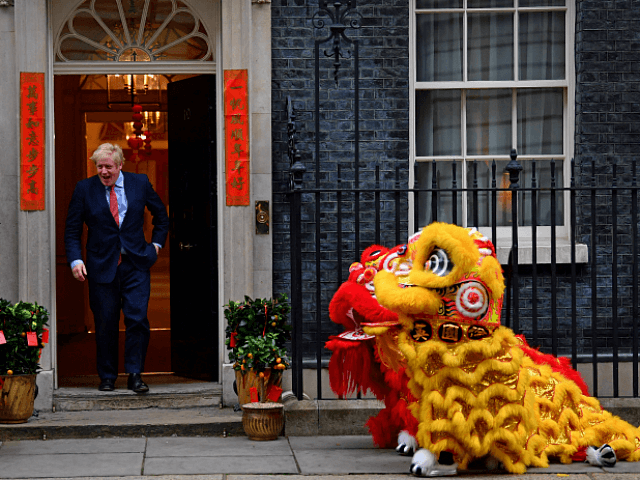Prime Minister Boris Johnson has reportedly reconsidered allowing Chinese tech giant Huawei access to the British 5G network, amidst increasing tensions with China over the coronavirus pandemic and the Chinese Communist Party’s infringement of freedoms in Hong Kong.
The Prime Minister has instructed his government to begin making plans that would see the Chinese tech firms’ involvement in the nation’s 5G infrastructure to zero by the year 2023.
“He still wants a relationship with China but the Huawei deal is going to be significantly scaled back. Officials have been instructed to come up with a plan to reduce Huawei’s involvement as quickly as possible,” a government source told The Telegraph.
“He has taken a great many soundings from his own MPs on this issue and shares their serious concerns. The deal was struck before the pandemic hit but coronavirus has changed everything,” the source added.
The government had previously stated that Huawei would only have access to the periphery of the network. The U.S. has warned that Huawei has the capability of building backdoor access into its systems, opening up the United Kingdom to cyber espionage from the Chinese Communist Party.
Earlier this month, Breitbart London reported that the U.S. was reviewing the status of all military and intelligence assets in Britain to see if they should be removed from the country as a result of the Huawei deal. The United States has also hinted that intelligence sharing in the Five Eyes security alliance, which also includes Australia, New Zealand, and Canada, could be in jeopardy if Huawei were allowed access to the British network.
British Govt Furious Over China's Virus Lies, 'Reckoning' Expected Post-Pandemic https://t.co/yLmkaiXt03
— Breitbart London (@BreitbartLondon) March 29, 2020
Huawei Vice President Victor Zhang said in a statement that the reports about Britain dropping the company “simply don’t make sense”.
“As a private company, 100 per cent owned by employees, which has operated in the UK for 20 years, our priority has been to help mobile and broadband companies keep Britain connected, which in this current health crisis has been more vital than ever. This is our proven track record,” Zhang suggested.
Huawei’s claims that they are a private company are dubious at best. A 2019 research paper conducted by Donald Clarke of George Washington University and Christopher Balding of Fulbright University Vietnam found that Huawei is 99 per cent owned by what is referred to as a “trade union committee”.
“Given the public nature of trade unions in China, if the ownership stake of the trade union committee is genuine, and if the trade union and its committee function as trade unions generally function in China, then Huawei may be deemed effectively state-owned,” the paper said.
Huawei Strikes £5 Million Deal With Corona-Modelling Imperial College London https://t.co/gXh63ohSFG
— Breitbart London (@BreitbartLondon) May 18, 2020
There have also been rising tensions between the United Kingdom and the communist regime over the issue of freedom in Hong Kong after the National People’s Congress in Beijing introduced new national security legislation.
The proposed law, which will easily pass through the rubber-stamp congress, would criminalise so-called subversion, separatism, foreign interference, “or any acts that severely endanger national security”. The law would give the state sweeping powers to clamp down on the pro-democracy protests that swept over the city last year.
“We expect China to respect Hong Kong’s rights and freedoms and high degree of autonomy. As a party to the joint declaration the UK is committed to upholding Hong Kong’s autonomy and respecting the one country, two systems model,” a Downing Street spokesman said per The Telegraph.
Asked whether or not the Chinese Communist Party’s recent actions violated the 1997 agreement with the United Kingdom, which governed Hong Kong formerly, the spokesman said: “We are monitoring this closely and our immediate priority is to clarify the details of what is being suggested.”
On Sunday, thousands of protestors took to the streets of Hong Kong in defiance of the proposed legislation.
“Because of the coronavirus, many people may have rested and attended less protests, but now it’s time for us to stand up,” said Agnes Chow of the pro-democracy party Demosisto.
“People need to be ready to go on the street and fight against [the proposed law],” Chow added.
22 Years Later: How The Chinese Communist Party Destroyed Legacy of the Hong Kong Handover https://t.co/9Jw3I9P5Sk
— Breitbart London (@BreitbartLondon) January 1, 2020
Follow Kurt on Twitter at @KurtZindulka

COMMENTS
Please let us know if you're having issues with commenting.